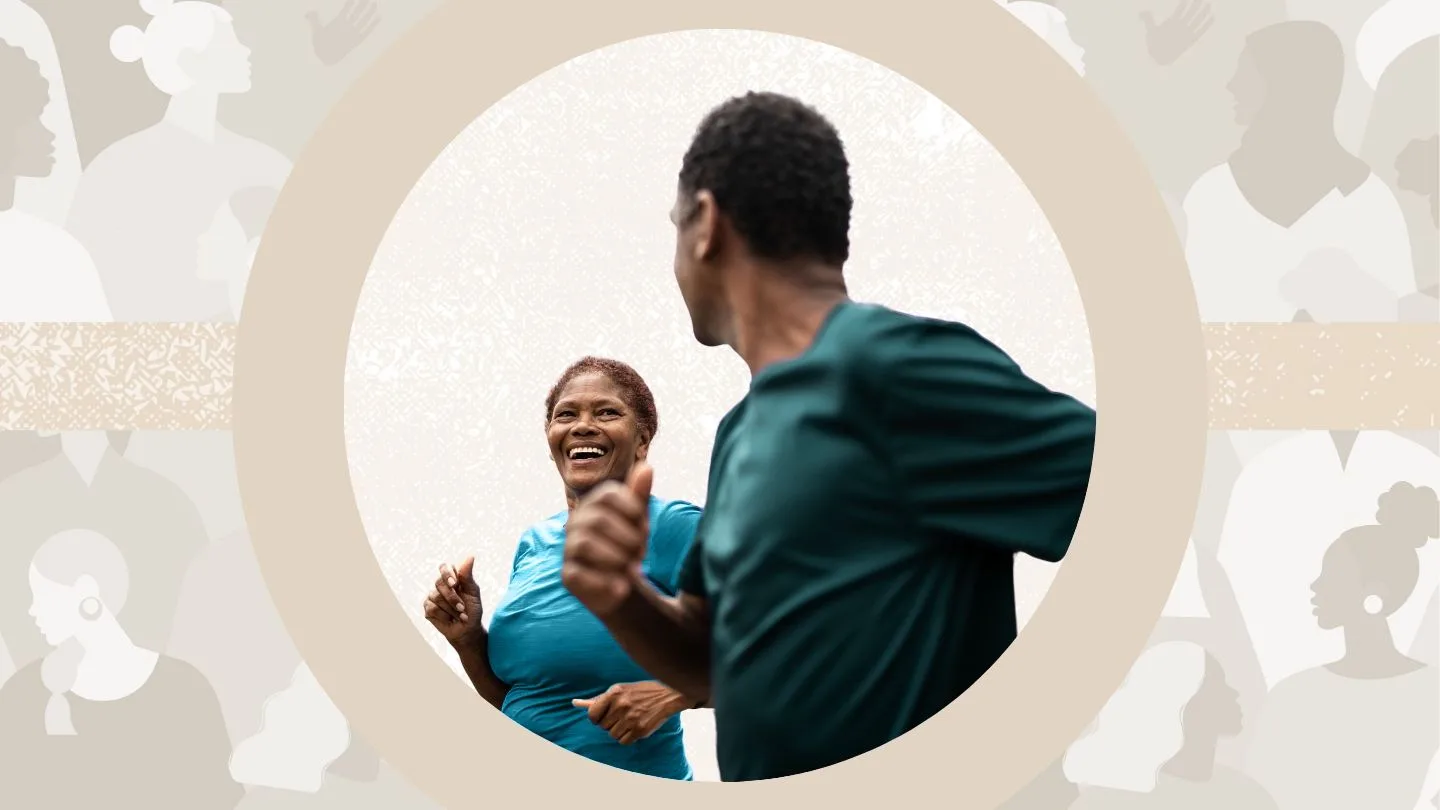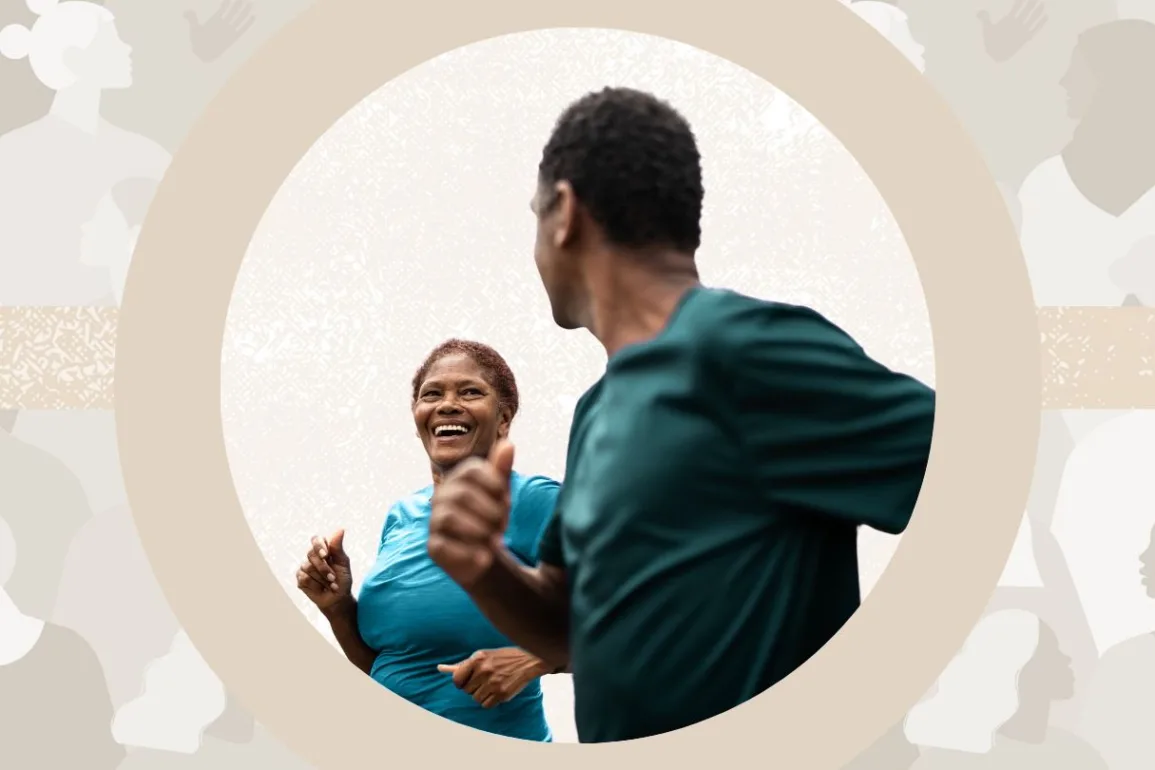
In 2014, at the age of 40, Tara Robinson survived three heart attacks in one week. Five years later, her brother-in-law Stephen Jordan died of a hypertensive heart attack at 38 years old.
“He woke up that morning and then died in front of his two teenage children,” Robinson says. “They saw him gasping for air. They saw him struggling to breathe. And now they’re dealing with the trauma and PTSD from those awful moments.”
Robinson had already been doing work in her community in Dallas–Fort Worth to spread awareness about the dangers of heart disease following her own heart attacks, but Jordan’s death and her family’s grief made her want to do more.
“I was the person assigned to take his black suit to the funeral home,” she recalls. “I remember so clearly looking at that black suit and thinking, this is the final dress rehearsal, and it’s all because of heart disease. Whether you’re Black, white, blue, green, or whatever, heart disease impacts us all. And I don’t want anybody to wear that black suit because of heart disease.”
Soon after the funeral, Robinson founded the Black Heart Association (BHA), a nonprofit organization focused on improving health outcomes in communities of color.
In the United States, Black adults are more than twice as likely to die of heart disease as white adults, according to research published in the journal Circulation: Cardiovascular and Quality Outcomes.
Cardiovascular disease also disproportionately affects Black Americans, at 47 percent of this population compared with 36 percent of white adults, per Cleveland Clinic. What’s more, nearly 59 percent of Black women have high blood pressure — which raises the risk of heart disease — but only 20 percent of those women have it under control, reports the American Heart Association (AHA).
“This is why I decided to focus on the Black community,” Robinson says. “Because the question is, How do we stop this train?”
Their Goal
The goal of the Black Heart Foundation is to eliminate disparities in heart health in Black and brown communities through education, advocacy, and empowerment.
“We hear the same talking points over and over: Eat healthy, exercise, try to live a healthy lifestyle,” Robinson says. “But how do we get people to actually do that? That became my question, and my goal is to be the solution.”
The Black Heart Association works at the community level to promote heart-healthy behaviors and provide free health screenings in underserved areas where there is little to no access to healthcare.
Services They Provide
One of BHA’s main initiatives is the Black Heart Association’s Mobile Unit — a bus that functions as a mobile heart center.
“We meet people right where they are, whether that’s a corner store or a corporate office,” Robinson says. “We go to churches, house parties, family reunions, festivals, anywhere you want us, we’ll show up. It could be for 10 people or thousands of people.”
Once the bus pulls up to the event, attendees have the option to undergo a series of heart health screenings, including blood pressure tests, a complete lipid panel, glucose A1C check, EKG, and genetic testing. Booking the bus is free and all tests are free except for the genetic testing, which is $30 on the bus instead of the $100 out of pocket at a doctor’s office. At mobile events, Robinson brings along medical doctors, nurses, mental health professionals, medical students, and volunteers who help perform the tests and offer counseling.
“We also have in-depth conversations with people about their numbers and lifestyle habits,” Robinson says. “What we see is when people get their cholesterol numbers from their doctor, for example, they often don’t understand what those numbers mean. So we start connecting the dots with them and say if your cholesterol is high, this can lead to a heart attack. If your HDL, or good cholesterol, is too low, this won’t protect your heart. It becomes this ‘aha!’ moment, which then helps enable the healthy lifestyle changes that are needed.”
The BHA mainly serves communities throughout Texas (the organization is headquartered in Dallas), but the bus has traveled to other states, including Louisiana and Kansas. Robinson hopes to take it national.
Another program the BHA recently got off the ground is Healthier Hoods, a no-cost delivery service that brings groceries to the doors of people experiencing food insecurity in the Dallas–Fort Worth metroplex.
“If you come on the bus and you tell us you need food, we don’t need to know anything else [about your circumstances],” Robinson says. “We have a conversation where we ask where you’re located, how we can get the food to you, what days of the week you want us to deliver, and what kinds of food you like. But then we also have the conversations of how we can make those meals healthier, and if you want that, that’s what we’ll deliver.”
The BHA currently works with food pantries on the Healthier Hoods initiative, and Robinson is working on building partnerships with local grocery stores, farms, and gardens.
Events
In addition to the mobile events the BHA runs, they hold panel discussions, three-mile walk/runs, and fundraisers throughout the year.
To learn more about the Black Heart Association’s events and programs, check out the organization’s website and social media channels.
Core Belief
“We believe that guarding our hearts above all else is crucial because everything flows through it,” Robinson says. “From stress and love to bad eating habits and great relationships, to a lack of exercise, all aspects of life are influenced by the state of our hearts.”



